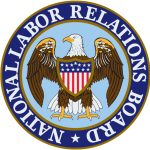 The National Labor Relations Board (NLRB) has overturned long-established precedent to hold that temporary workers supplied by a staffing agency may be put in the same bargaining unit as a company’s regular employees, without the consent of both employers.
The National Labor Relations Board (NLRB) has overturned long-established precedent to hold that temporary workers supplied by a staffing agency may be put in the same bargaining unit as a company’s regular employees, without the consent of both employers.
The decision in Miller & Anderson, Inc. follows on the heels of a decision last year (Browning-Ferris Industries of California, Inc.) that redefined the long-standing test for determining joint-employer status.
Uncertainty
The latest decision magnifies uncertainties for employers with temporary/contingent workers.
In the past, if an employer, for instance, a soda manufacturer, had both direct and temporary workers, a union would have to get permission from both the soda manufacturing company and the temp agency before it could organize the regular employees and the temporary employees into a single bargaining unit.
Now, the NLRB has done away with the employer consent requirement. As the Wall Street Journal noted: “firms that use temp agencies or subcontractors (e.g., cleaning, security, hospitality) could be required to collectively bargain with workers that they use only for short durations. Even after the temp workers leave, the company is stuck with the union and its labor contract.”
The dissent in Miller & Anderson pointed out the uncertainty that employers now face: the expansive decision “will only make it more difficult for parties to anticipate whether, when or where this new type of multi-employer/nonemployer bargaining will be required.”
Browning-Ferris
The uncertainty from the Miller decision is compounded by last year’s Browning-Ferris decision on the joint employment standard. In that case, the NLRB departed from the long-standing joint-employer test it previously used, which focused on the extent a company exercised direct control over working conditions before the company could be found to be a joint employer.
The NLRB switched to a broader test that allowed companies to be potentially liable for labor violations even if they had only indirect or unexercised control over employment conditions.
The issue before the NLRB was whether waste services company Browning-Ferris Industries of California, Inc. (BFI) and staffing agency Leadpoint Business Services were joint employers of about 240 full-time, part-time and on-call temporary workers who worked at the BFI facility and whom the union petitioned to represent. BFI employed about 60 people for its waste facility and used other temporary workers supplied by Leadpoint.
In the BFI decision issued in August 2015, the NLRB said “reserved authority” that is not actually exercised also will be considered relevant and found that BFI was a joint employer with Leadpoint. The NLRB said it still will look at whether there is “sufficient control over the work of the employees to qualify as a joint employer with another employer, but there will not be a requirement that the control be exercised directly and immediately.”
The NLRB issued a statement noting that the previous standard hadn’t kept pace with changing workplace and economic conditions, as more than 2.87 million of the nation’s workers were employed through temporary agencies in August 2014.
After the NLRB determined that BFI was a joint employer, the union prevailed at a representation election. Testing the NLRB’s decision, BFI did not recognize the union. The union then filed an unfair labor practices charge. In January, the NLRB found that BFI and Leadpoint violated the National Labor Relations Act, and BFI appealed.
The appeal was filed in the U.S. Court of Appeals for the D.C. Circuit.
Employer groups, including the U.S. Chamber of Commerce, are supporting BFI’s appeal.
Consequences
The effect of these decisions is to make it easier for unions to organize workplaces that use a lot of temporary workers.
In fact, the dissent to the majority decision in the BFI case pointed out that the change “will subject countless entities to unprecedented new joint-bargaining obligations that most do not even know they have, to potential joint liability for unfair labor practices and breaches of collective-bargaining agreements, and to economic protest activity, including what have heretofore been unlawful secondary strikes, boycotts and picketing.”
Employers with significant contingent workforces may wish to consult with legal counsel on the impact of these NLRB decisions.

